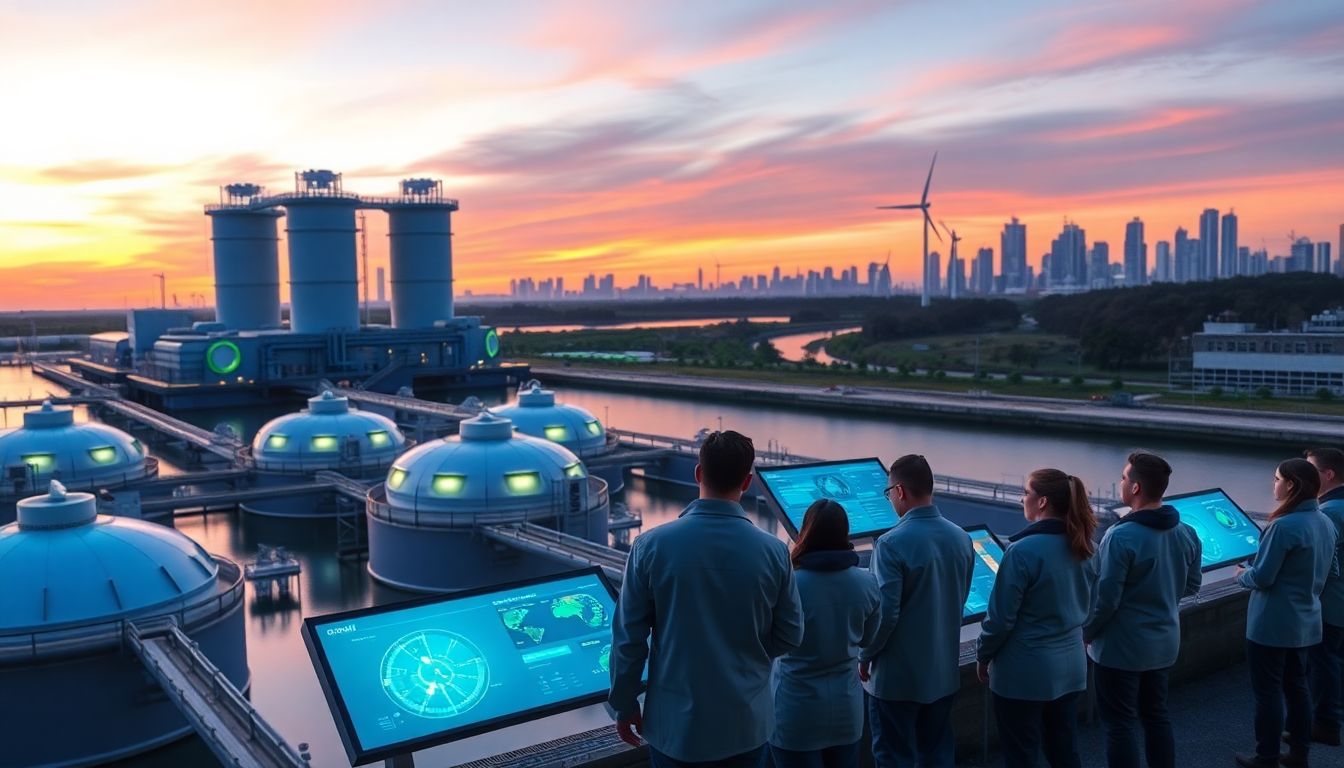Wastewater Treatment: A 2025 Business Essential
Why Every Business Needs a Wastewater Treatment System in 2025
In 2025, the need for sustainable practices is no longer optional but essential for businesses worldwide. Among these practices, wastewater treatment has emerged as a critical component, not just for environmental preservation but also for compliance, cost savings, and corporate responsibility. Here’s why every business should prioritize wastewater treatment in 2025:
1. Regulatory Compliance
Governments and environmental agencies are tightening regulations around wastewater discharge. Non-compliance can lead to hefty fines, shutdowns, or even legal action. For example, the Clean Water Act in the United States and the European Union’s Water Framework Directive mandate strict limits on the contaminants businesses can release. A wastewater treatment system ensures your business meets all local, national, and international standards, safeguarding your operations from regulatory risks.
2. Environmental Responsibility
Businesses are under increasing scrutiny to reduce their environmental footprint. Untreated wastewater contains pollutants like heavy metals, chemical toxins, and pathogens, which can contaminate water bodies, harm aquatic life, and disrupt ecosystems. Advanced wastewater treatment systems use technologies like biological treatment, membrane filtration, and advanced oxidation processes to remove these contaminants effectively, ensuring cleaner water discharge and a healthier planet.
3. Cost Savings
While investing in a wastewater treatment system may seem like a significant expense upfront, it can lead to substantial cost savings in the long run. Reusing treated water reduces reliance on fresh water, lowers water bills, and minimizes waste disposal costs. Additionally, modern treatment systems, such as those incorporating anaerobic digestion, can produce biogas as a by-product, which can be used to generate energy, further reducing operational costs.
4. Industry-Specific Advantages
Wastewater treatment offers unique benefits to various industries:
- Manufacturing: Industries like textiles, chemicals, and pharmaceuticals produce wastewater containing dyes, solvents, and organic matter. Treatment systems ensure safe disposal and enable water reuse in processes.
- Food and Beverage: Breweries, dairies, and food processors can utilize systems to remove organic waste and meet stringent hygiene standards.
- Hospitality: Hotels and resorts can recycle water for landscaping, cooling, and cleaning, reducing their water footprint.
- Healthcare: Hospitals and labs generate wastewater with harmful contaminants, which must be treated to prevent public health risks.
- Construction: On-site treatment solutions help manage runoff water and reduce environmental impact during large-scale projects.
5. Resource Recovery
Modern wastewater treatment systems are not just about cleaning water; they also enable resource recovery. Businesses can extract valuable by-products like biogas, phosphates, and clean water. For example, nutrients like nitrogen and phosphorus can be recovered and used as fertilizers in agricultural applications. Advanced technologies such as reverse osmosis and nanofiltration ensure high-quality water suitable for reuse in industrial processes.
6. Risk Mitigation
Untreated wastewater can lead to operational risks, including water shortages, contamination incidents, and reputational damage. A robust wastewater treatment system minimizes these risks, ensuring uninterrupted operations and peace of mind. Industries dependent on consistent water supplies, like electronics manufacturing or food processing, particularly benefit from such systems.
7. Operational Efficiency
Implementing a wastewater treatment system streamlines operations by reducing reliance on external water sources. By treating and reusing water onsite, businesses can maintain operational continuity even during periods of water scarcity. Modern automated systems equipped with IoT-enabled monitoring provide real-time data, allowing businesses to optimize water usage and minimize waste.
8. Enhanced Brand Reputation
Consumers and investors are increasingly favoring businesses that demonstrate environmental responsibility. A wastewater treatment system is a visible commitment to sustainability, which can enhance your brand’s image and appeal to eco-conscious customers and stakeholders. Highlighting your water conservation efforts can also be a key differentiator in competitive markets.
9. Long-Term Viability
Water is an essential resource for all businesses, and its scarcity poses a significant threat to long-term viability. By investing in wastewater treatment, businesses secure a sustainable water supply for future operations. This proactive approach ensures resilience against rising water costs, supply chain disruptions, and environmental challenges.
10. Contributions to Circular Economy
A wastewater treatment system aligns with the principles of a circular economy, where resources are reused and recycled rather than discarded. By treating wastewater and recovering valuable materials, businesses reduce their dependency on virgin resources and contribute to a more sustainable economic model.
Aaradhya: Your Partner in Wastewater Solutions
At Aaradhya, we understand the evolving needs of businesses in 2025. Our advanced wastewater treatment systems are designed to be efficient, cost-effective, and environmentally friendly. Whether you run a manufacturing unit, a hospitality business, or a commercial enterprise, Aaradhya has the expertise to help you implement sustainable wastewater management practices. Our solutions include:
- Customized Treatment Systems: Tailored solutions for specific industry requirements.
- Advanced Technologies: Utilizing cutting-edge methods like MBBR (Moving Bed Biofilm Reactor), SBR (Sequencing Batch Reactor), and zero-liquid discharge systems.
- Turnkey Solutions: From design to installation and maintenance, we provide end-to-end support.
Conclusion
In 2025, businesses that invest in wastewater treatment systems are not only complying with regulations but also paving the way for a sustainable future. By reducing costs, protecting the environment, and enhancing operational efficiency, these systems are a must-have for industries looking to thrive in a competitive landscape.
By Deep Bhagat,
Jr. Social Media Manager,
https://www.linkedin.com/in/deep-bhagat-188201315
The Biz Tree
https://www.thebiztree.com/

